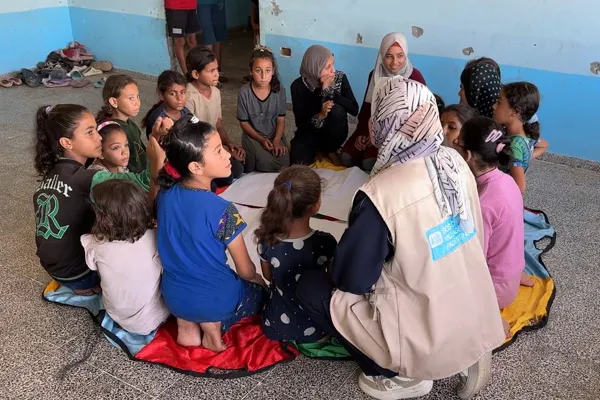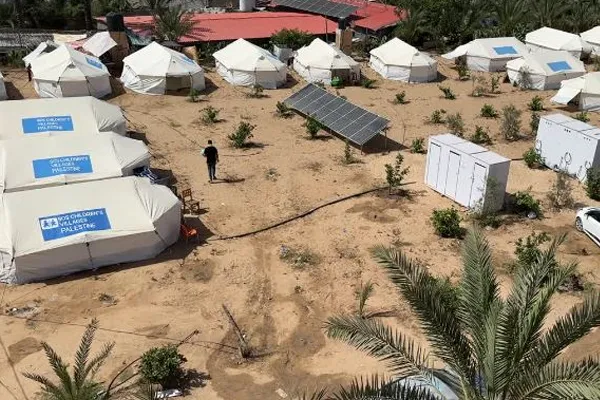Months after their evacuation to the West Bank from Rafah, children adapt to new life without fear

© Mohammad Al Baba
Three months after 68 children, their caregivers and their families from SOS Children's Villages in Rafah were evacuated to the West Bank, the children live between joy and feelings of guilt.
They are among the few residents of Gaza who were able to leave the area during the war.
"Fortunately, there are no more dangers here," says Ola*, an SOS Children’s Villages caregiver from Rafah, about their life in the West Bank.
The children and adults arrived at their new temporary home at SOS Children’s Villages in Bethlehem, West Bank, on March 11, 2024. The three-day bus journey took them through Egypt and Israel.
From the start, the interaction between the local children and those from Gaza was easygoing. Ola says: "It is remarkable that our children do not close themselves off after everything they have experienced in the war. I am so proud that they can accept their new life in Bethlehem and reach out to other people."

© Mohammad Al Baba
Fear of dying
Social worker Eslam* emphasizes that the children still need a lot of time. The war and the fear for their own lives remain with them. She says: "Those who are used to the sounds of battle and fear need time to get used to peace and quiet. In Rafah, the children were under constant stress. They couldn't just walk out into the street. They first have to get used to simple things that other people take for granted."
Eslam, who has worked as a social worker for SOS Children's Villages in Gaza for 13 years, accompanied the children on their bus trip from Rafah to Bethlehem. She says: "The symptoms of war still come up, especially at night, in the form of bedwetting and nightmares."
There were no peaceful nights’ rest in Gaza. "The children constantly came to us and asked: 'Will we wake up alive tomorrow morning? When will our time come to die? When is it our turn?'" says Eslam.
Concern for friends
To process the experiences, the children receive psychological support. Ghada Hirzallah, National Director of SOS Children's Villages Palestine, says: "They have suffered trauma, but they also have a lot of strength. We take care of their physical and mental health. We have integrated many activities, such as painting and dance therapy into their everyday lives, in which they learn to deal with what they have experienced in a playful way. They have a right, like any other child, to live freely and safely and to pursue their dreams and goals."
Not all children find this easy. Ms. Hirzallah says: "They are ambivalent: on the one hand, they are happy to be here; on the other hand, they feel guilty because they left their friends behind. We work with them so that they can let go of their feelings of guilt. They are smart and learn to deal with the situation. And they are grateful for the opportunities they get here in Bethlehem."
This also includes the opportunity for education. The children have not been able to go to school since the start of the fighting in Gaza. They will receive transitional lessons until the new school year begins, when they can participate in the regular school day.
In both Israel and Palestine, SOS Children's Villages has been helping children who have lost parental care or are at risk of losing it for decades and supporting families to keep them together and prevent family breakdown.
*Name changed to protect privacy.
